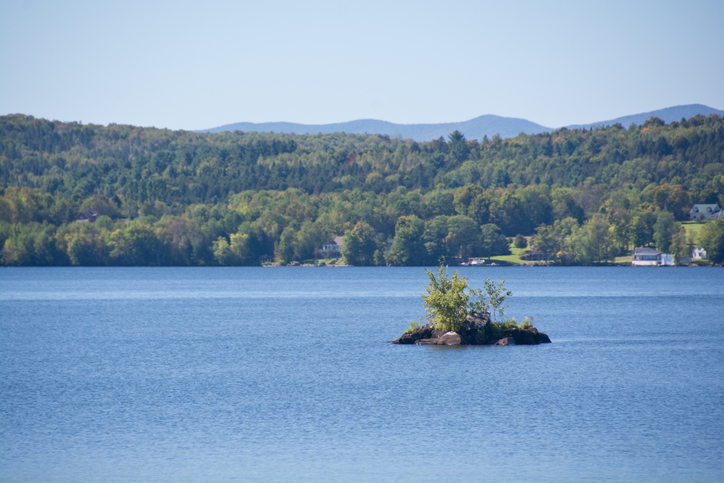CEC receives submission on cross border water pollution in Lake Memphremagog
Montreal, 12 July 2019—On 5 July 2019, the organization Memphremagog Conservation Inc. (the “Submitter”) filed a submission with the CEC Secretariat, asserting that both the United States and Canada are failing to effectively enforce environmental laws with respect to water pollution in Lake Memphremagog, which straddles the US/Canadian border in northern Vermont/southern Quebec.
In submission SEM-19-003 (Lake Memphremagog), the Submitter asserts that the two countries are not effectively enforcing the International Boundary Waters Treaty with respect to water pollution in Lake Memphremagog. The Submitter contends that a proposed landfill expansion in Coventry County, Vermont, will cause water pollution to cross the US/Canadian border via the lake, which is used for drinking water by Quebec residents in the province’s Eastern Townships. The Submitter also asserts that under applicable Vermont law, the state must ensure that a landfill expansion project will not unduly increase water pollution or the discharge of toxic waste into groundwater. The Submitter is specifically concerned with landfill leachate, which often includes per- and polyfluoroalkyl substances (PFAS), and requests that meaningful studies be carried out before the landfill expansion is approved.
The CEC Secretariat has thirty (30) days to examine the submission and determine whether it satisfies the requirements set forth in Article 14(1) of the North American Agreement on Environmental Cooperation (NAAEC).
For further information, consult the CEC Submission on Enforcement Matters website and the registry of submission SEM-19-003 (Lake Memphremagog).

Gull Rock Island is a tiny speck of rocks and land in the southern part of Lake Memphremagog.
The CEC SEM Process
The CEC Submissions on Enforcement Matters process supports public participation, information-sharing between governments and the public, and transparency and openness in the effective enforcement of environmental law in North America. If you have reason to believe that an environmental law is not being effectively enforced by Canada, Mexico or the United States, the SEM process may address your concerns.
As of 1 July 2020, the CEC’s SEM process is governed by USMCA Articles 24.27 and 24.28 of the Environment Chapter of the free trade agreement between Canada, Mexico and the United States (CUSMA, T-MEC, USMCA).
Want to learn more about the SEM process? Please watch this two-minute video for an introduction: